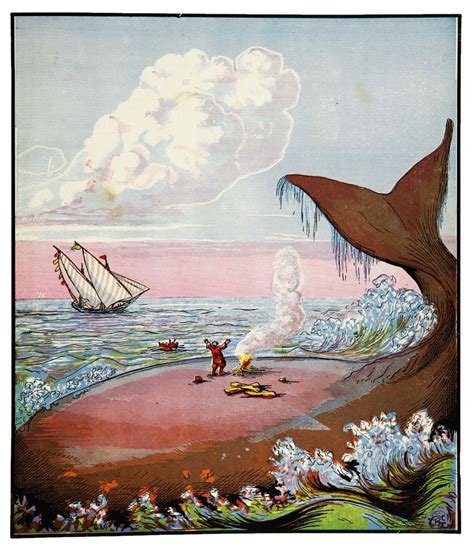In the vast expanse of English literature, few names are as revered and enigmatic as that of Joseph Conrad. With his unparalleled command over language and an innate ability to weave intricate tales that explore the depths of human nature, Conrad stands tall as a literary luminary whose influence reverberates across the ages. Delving into his captivating life and astounding literary legacy unveils an artist who ventured far beyond the realm of ordinary storytelling, leaving an indelible mark on the world of literature.
Within the rich tapestry of Conrad's writing, one encounters a kaleidoscope of emotions and experiences, meticulously crafted with words that transcend time and place. His narratives resonate with an extraordinary sense of authenticity, often drawing inspiration from his own unconventional life. From his tumultuous journeys to the remote corners of the earth as a merchant marine to his encounters with diverse cultures and societies, Conrad's personal experiences infuse his works with a fresh perspective that captivates readers and provokes profound introspection.
Language, in Conrad's hands, becomes a powerful instrument, capable of illuminating the darkest recesses of the human psyche. His words possess a magnetic quality, drawing readers into a world where suspense intertwines with psychological depth. Often grappling with the themes of morality, honor, and the inherent darkness within mankind, Conrad invites his readers on a voyage that navigates the treacherous waters of the human condition. Through his distinct ability to conjure vivid imagery and evoke raw emotions, Conrad's writings leave an indelible impression, challenging readers to confront uncomfortable truths.
While it is impossible to overstate Conrad's literary achievements, his impact extends far beyond the literary realm. His exploration of colonialism, imperialism, and socio-political power dynamics in works such as "Heart of Darkness" continues to spark critical discourse and inspire interdisciplinary studies in fields ranging from history to anthropology. Conrad's ability to shed light on the complexities of the human experience, navigating the vast spectrum of human triumphs and follies, has earned him a place among the greatest literary minds in history.
Join us on a journey to unravel the enigma that is Joseph Conrad. As we delve into the mysteries of his life and his unparalleled storytelling arsenal, we will discover the profound impact he has had, and continues to have, on the world of literature and beyond. Prepare to be captivated by the brilliance of a mastermind whose words carry the weight of timeless truths and eternal introspection.
Early Years: A Voyage from Sailor to Novelist

In this intriguing section, we unveil the captivating journey of Joseph Conrad from his beginnings as a mariner to his evolution into a renowned novelist. Delve into the formative years that shaped his unique perspective and exceptional storytelling abilities.
Joseph Conrad's early life was marked by a profound engagement with the sea, as he embarked on various voyages across the world. Through these experiences, he gained invaluable insights into the human condition, cultural diversity, and the inherent conflicts that arise amidst the vast expanse of the ocean.
As a seafarer, Conrad witnessed the raw power of nature, the relentless pursuit of personal desires, and the fragility of societal structures in the face of adversity. These encounters not only shaped his later works but also fostered a deep sense of empathy and understanding towards the struggles of individuals trapped within the complexities of life.
Conrad's transition from a sailor to a novelist was influenced by his desire to capture and articulate the intricate human emotions he had encountered during his time at sea. Through the medium of literature, he sought to explore and reflect upon the universal themes of endurance, morality, and the indomitable spirit of humanity.
With each carefully crafted narrative, Conrad brought to life the struggles and triumphs of individuals navigating their way through the intricate tapestry of existence. His masterful storytelling often delved into the depths of human psyche, unravelling the complex layers that shape individuals and society at large.
As you immerse yourself in this section, be prepared to embark on a virtual voyage alongside Joseph Conrad, witnessing the transformative power of his early experiences at sea and their lasting impact on his literary legacy.
Journeying into the Abyss: Conrad's Most Memorable Works
Delve into the abyss of Joseph Conrad's literary genius as we explore his most iconic works. These masterpieces offer an unparalleled glimpse into the depths of human nature, taking readers on a profound journey into the heart of darkness that lies within us all.
Through his evocative prose and poignant storytelling, Conrad reveals the complexities of the human condition, shining a light on the inherent darkness and moral ambiguity that pervades society. His works transcend time and place, drawing readers into the turbulent landscapes of colonial Africa, the treacherous seas of the high seas, and the tumultuous depths of the human soul.
One of Conrad's most celebrated works is the haunting and enigmatic "Heart of Darkness." In this chilling novella, he explores the savage darkness that resides within the human psyche, as experienced by the protagonist, Marlow, in his harrowing journey up the Congo River. Through vivid descriptions and symbolic imagery, Conrad unveils the horrors of colonization, exposing the destructive forces of greed and power that drive humanity towards its darkest impulses.
Another remarkable work by Conrad that deserves mention is "Lord Jim." This novel delves into themes of guilt, redemption, and the complexities of personal honor. Set against the backdrop of the tumultuous East Indies, it follows the journey of the titular character, Jim, as he grapples with a fateful decision that haunts him throughout his life. Conrad's masterful storytelling and nuanced characterization make "Lord Jim" a gripping exploration of the human capacity for courage, guilt, and redemption.
Lastly, "Nostromo" stands as a testament to Conrad's ability to weave intricate tales of adventure, political intrigue, and human nature's darker shades. Set in a fictional South American republic, the novel delves into themes of corruption, revolution, and the erosion of human morality in the pursuit of power. Through the multifaceted character of Nostromo, Conrad demonstrates the destructive consequences of individual ambition and the fragility of the human spirit when confronted with the allure of wealth and power.
In conclusion, Conrad's most iconic works invite readers on a transformative journey into the darkest recesses of the human soul. Through his powerful storytelling and penetrating insight, he unravels the complexities of morality, colonialism, and the depths of human nature, leaving an indelible mark on the literary world.
The Intricate Writing Style of Joseph Conrad: A Master of Symbolism and Contrasts

Within the literary realm, Joseph Conrad stands as a luminary figure acclaimed for his unparalleled mastery of symbolism and deft employment of contrasts. Through his profound narratives, Conrad intricately weaves a tapestry of meaning, imbuing his works with a rich and multi-layered subtext that captivates readers. The exploration of profound symbolism and the skillful utilization of stark contrasts are the hallmarks of Conrad's writing style, contributing to the enduring allure and significance of his literary legacy.
Symbolism: Communicating Beyond Words In Conrad's works, symbolism serves as a potent instrument that transcends the confines of language, allowing for a deeper understanding and interpretation. By imbuing objects, characters, and events with symbolic meaning, Conrad invites readers to delve into the hidden depths of his narratives. Through nuanced symbols such as the ominous fog in "Heart of Darkness" or the elusive nature of Kurtz's character, Conrad challenges readers to unravel the intricate layers of meaning concealed within his prose. | Contrasts: Heightening Narrative Tension Contrasts in Conrad's writing are not mere opposites; they serve a profound purpose in constructing the thematic foundations of his works. These stark juxtapositions of light and darkness, civilization and savagery, and innocence and corruption intensify narrative tension, amplifying the emotional impact on readers. Conrad's adeptness at weaving these contrasts seamlessly into his narratives creates a sense of duality, forcing readers to confront the inherent complexities of human nature and the inherent paradoxes within our society. |
In summary, Joseph Conrad's writing style is a testament to his unparalleled grasp of symbolism and his ability to harness the power of contrasts within his narratives. Through the vivid depiction of symbols and the skillful use of stark juxtapositions, Conrad invites readers into his intricately crafted worlds, challenging them to unravel the profound meanings concealed within his works. His unique approach to storytelling, characterized by these stylistic elements, ensures Conrad's enduring presence as a literary master.
Exploring Conrad's Themes of Colonialism, Identity, and Morality
In this section, we delve into the profound topics that resonated throughout Joseph Conrad's illustrious body of work. Conrad's writings intricately examine the complex web of colonialism, the search for identity, and the delicate balance between moral conflicts.
Colonialism
Conrad's deeply nuanced exploration of colonialism showcases the exploitation, power dynamics, and cultural clashes inherent in the imperialistic pursuit. Through his vivid narratives, Conrad weaves tales that depict the harsh realities faced by both the colonizers and the colonized, questioning the notion of superiority and shedding light on the destructive consequences of oppressive systems.
Identity
Intertwined within Conrad's narratives is a constant quest for identity, as characters grapple with their own sense of self in the midst of uncertain and volatile circumstances. Conrad paints a vivid picture of individuals caught between the expectations of society, the pull of their heritage, and their own desires, often leading to internal struggles and a poignant exploration of what it means to be human.
Morality
Central to Conrad's works is an exploration of morality, where characters are faced with difficult choices and ethical dilemmas. Through richly developed characters, Conrad delves into the depths of human nature, unveiling the complexities of right and wrong, and challenging readers to reflect on the consequences of their actions. Conrad's exploration of morality forces us to confront our own beliefs and assumptions, compelling a critical examination of the world around us.
By dissecting and analyzing the themes of colonialism, identity, and morality in Conrad's works, we gain a deeper understanding of the impactful legacy left by this literary titan. His writings serve as a powerful lens through which to examine and critique societal norms, prompting thought-provoking discussions on the complexities of the human experience.
Enduring Influence: Joseph Conrad's Lasting Impact on Literature and Beyond

In this section, we will explore the far-reaching legacy and profound influence of Joseph Conrad, the renowned novelist and storyteller. Conrad's work continues to captivate readers and scholars alike, transcending time and cultural boundaries with its timeless themes and insightful narratives.
Conrad's enduring impact on literature can be attributed to his masterful storytelling, which flawlessly combines literary techniques with a deep exploration of the human condition. Through his vivid prose and intricate character development, Conrad delves into the complexities of human nature, exposing the depths of the human psyche and questioning the moral fabric of society.
Moreover, Conrad's enduring influence extends beyond the realm of literature. His works have inspired countless writers and artists, shaping the landscape of modern storytelling. His innovative narrative techniques, such as the use of multiple perspectives and non-linear storytelling, have been widely adopted and continue to push the boundaries of literary conventions.
Additionally, Conrad's exploration of themes such as imperialism, colonialism, and the clash of cultures have had a profound impact on the way we understand and critique historical and political issues. His insightful critiques of power dynamics and the consequences of unchecked human ambition continue to resonate deeply in today's world.
Conrad's legacy also extends to the field of psychology, as his nuanced portrayals of human psychology and the effects of trauma have influenced the development of psychological theories and understanding of the human mind. His exploration of the unconscious, inner turmoil, and the impact of past experiences on present behavior have contributed to the rich tapestry of psychological literature.
In conclusion, Joseph Conrad's enduring influence on literature and beyond is a testament to his unparalleled storytelling ability and profound understanding of the human condition. His works continue to inspire, provoke thought, and shape the way we perceive and interpret the world around us.
FAQ
What were the key influences on Joseph Conrad's writing?
Joseph Conrad's writing was influenced by his own experiences as a sailor in the British Merchant Navy. The time he spent at sea provided him with valuable insights into the human condition and became the inspiration for many of his novels, such as "Heart of Darkness". Additionally, Conrad's Polish heritage and his knowledge of multiple languages contributed to the unique style of his writing.
Did Joseph Conrad's personal life have any impact on his literary works?
Yes, Joseph Conrad's personal life greatly influenced his literary works. His experiences as a sailor and his encounters with different cultures and peoples informed the themes and settings of his novels. Moreover, Conrad's own struggles with identity and displacement, as a Polish-born writer living in England, are frequently explored in his works through the lens of his characters.
What is the significance of Joseph Conrad's novel "Heart of Darkness"?
"Heart of Darkness" is considered one of Joseph Conrad's most significant and impactful works. The novel explores the darkness that exists within the human soul and critiques the imperialism and exploitation prevalent in the colonial era. Through its powerful themes and vivid descriptions, "Heart of Darkness" continues to provoke thought and engage readers in discussions about morality, power, and race.
How did Joseph Conrad's writing style contribute to his literary legacy?
Joseph Conrad's writing style was characterized by its deep psychological insights, use of complex narrative techniques, and evocative descriptions. His ability to delve into the darker aspects of the human psyche and to vividly depict the complexities of human nature left a lasting impact on the literary world. Conrad's unique style continues to influence and inspire writers to this day.
What are some of Joseph Conrad's lesser-known works?
While Joseph Conrad is most famous for works like "Heart of Darkness" and "Lord Jim", he also wrote several lesser-known works that are worth exploring. "Nostromo", a novel set in a fictional South American country, and "The Secret Agent", a tale of political intrigue in London, are among Conrad's lesser-known works that showcase his masterful storytelling and exploration of complex themes.
What were the major influences on Joseph Conrad's writing?
Joseph Conrad's writing was influenced by his own personal experiences as a sailor in the merchant navy, which allowed him to vividly depict the maritime world in his works. Additionally, his upbringing in Poland, his exposure to different cultures and languages, and his encounters with colonialism also played a significant role in shaping the themes and settings of his novels.



